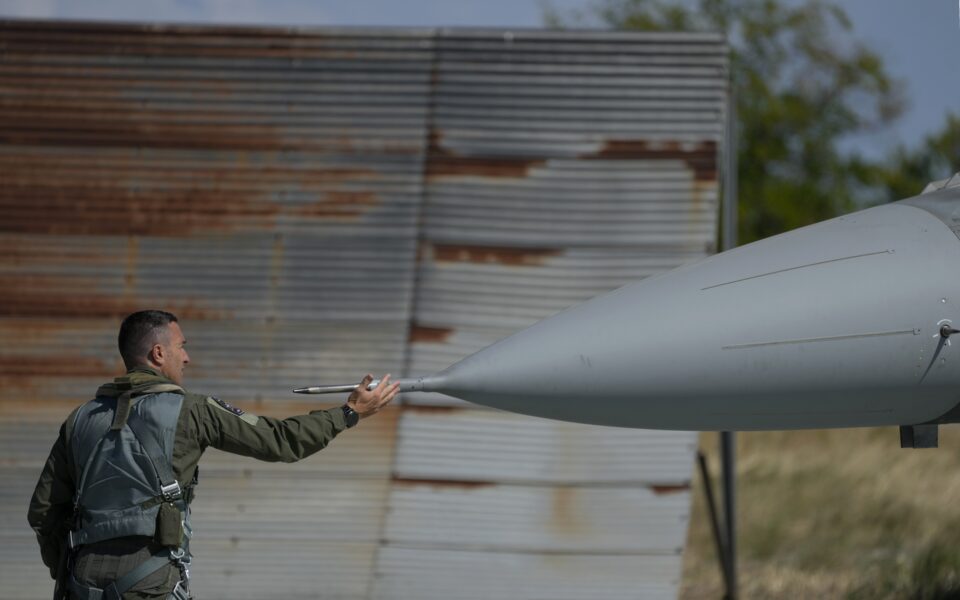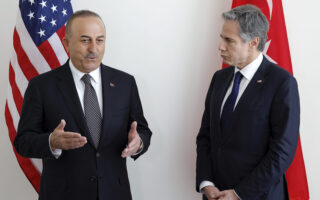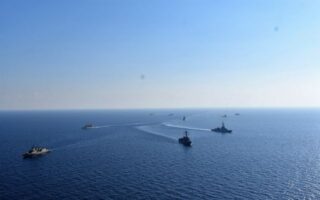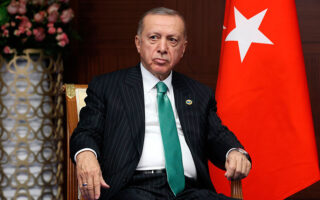Adjusting the bar on expectations regarding Greece-Turkey relations

The reduction of tensions with Turkey is the tangible reality of the last few months that cannot be disputed. Violations of national airspace have been minimized and belligerent statements by Turkish officials have ceased. A climate of moderate optimism is justifiably being created for the course of Greek-Turkish relations. However, there are two very important questions that no one can answer with certainty today. How sincere is the Turkish regime’s charm offensive launched after the country’s devastating earthquake? What will happen if the opposition wins the upcoming Turkish elections?
At least there are some common assumptions that help us set the bar of our expectations at the right place. Despite their ideological differences, the two Turkish electoral coalitions embrace the same perception of Greek-Turkish differences. Greece is treated as a smaller country that has to make concessions. On the other hand, one cannot ignore the role of leadership in a country that has a long tradition of centralized power and despotism. President Recep Tayyip Erdogan still has the personal capital to restore bilateral relations with Greece to a civilized level. On the contrary, Republican People’s Party (CHP) leader Kemal Kilicdaroglu is likely to continue the policy of increasing tension toward Greece. Due to his religious background (Alevi), his lack of communication skills and his political dependence on conservative forces, the opposition candidate will be forced to regularly play the nationalist card, if elected.
In any case, Athens has every interest in seizing the opportunity presented in front of it to buy time. It is a presumption of political maturity that Greek-Turkish relations are not the subject of political arguments ahead of Greece’s May general elections. But at a time when our country is entering a long campaign period with an uncertain outcome, the politicians must go above and beyond and adopt a national strategy toward Turkey. The debate between political parties on Greek-Turkish relations is legitimate and necessary, but it needs to be based on three conditions.
First, Greece’s national position is that our only difference with Ankara is the delimitation of an exclusive economic zone (EEZ) and continental shelf. Any addition of issues for negotiation only makes sense if Greek claims are included. However, even in this case, there are two issues that should be the immovable red line for the Greek side: the status of the islands and the right to self-defense. It is never possible for Greek sovereignty over islands and islets to be negotiated. Nor, of course, can Athens carry out a complete or partial demilitarization of its territory just because a country of 85 million citizens claims to be threatened.
Second, the implementation of the country’s armaments program must continue unabated. Strengthening the Armed Forces is not a luxury, but an absolute necessity. Even if the Turkish military threat did not exist, our region is characterized by great geopolitical fluidity and instability. The war in Ukraine is forcing all European countries to significantly increase defense spending. This is the world we live in and not in some other ideal. Greece needs a powerful Navy to protect its sea borders, its EEZ and continental shelf and sea lanes of communication in the Eastern Mediterranean. It also needs a state-of-the-art Air Force that will act as a guarantor of security in the region.
Third, Athens must – for moral, legal and national reasons – support the Republic of Cyprus continuously and without interruption. This commitment should transcend interpersonal relationships and individual opinions, because the national interest dictates this. Cypriot Hellenism deserves everyone’s respect and support. The effort to resolve the Cyprus issue is not a “burden,” but a condition for the consolidation of peace between Greece and Turkey. In the meantime, Nicosia has the right to exploit its energy deposits in the way it wishes.
Obviously, Greek-Turkish relations do not have to operate like a zero-sum game, where what is good for Greece is bad for Turkey and vice versa. Perhaps some Turkish actors are now realizing this. This new spring in Greek-Turkish relations should not, however, lead to retreats from national positions, reduction of defense spending and almost abandonment of Cyprus. If the price of normalizing relations with our neighbor is ultimately so high, then it is not worth paying. Our freedom and dignity are priceless.
Manos Karagiannis is a professor in the Department of Balkan, Slavic and Oriental Studies at the University of Macedonia and reader in international security at King’s College London. His book (in Greek) “Deterrence and Defencse” is published by Papadopoulos Editions.{IDIOT}





